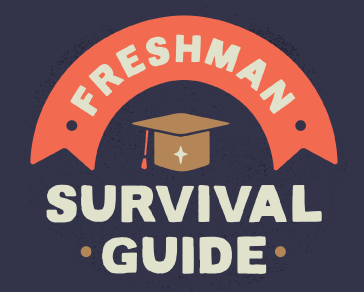OMG books cost what???
Tips and tricks from a college senior So college books are REALLY expensive. If you have not figured this out by now…whoa. There are many options out there for college’s books to buying, renting, ebooks, etc. I will be talking mostly about book buying since that is my favorite option. Your college most likely will […]
Pre-College Jitters-You Are Not Alone!
Fa-la-la-la-la-la tis the season. Everyone is going back to school and most of you are going to college. Whether you are going to college out of state, transferring, or commuting college is a HUGE step in your life. Most people are leaving home for the first time and it can be kind of intimidating. I […]
How to say Goodbye to Family and Friends
As you go away to college in the next few weeks saying goodbye to your family friends can be the hardest part of leaving. These are the people who made you who you are today and it’s important not to forget that. A fun way to say goodbye is having a going away dinner/party […]
Having “The Talk”
I don’t mean THAT talk, although chances are parents will try and squeeze in a refresher on that subject before you depart for college. Everyone is different but sending a child off to college is a big deal for parents (whether they show it or not). It’s a mix of pride, excitement, anxiety and loss. […]
Top Ten Things Freshmen Should Do During Their First Year
Hello All! My name is Megan and I am one of the Interactive RAs. I work at Ramapo College of New Jersey as a Resident Assistant. At Ramapo, there is a list of 100 things students should do before they graduate and some of them can be applied to any school. So, here is my […]
How to survive the First Day of Classes
Here is a tip that should be stated before we begin: Classes in college are different than in high school. You may be saying “Well DUH, I knew that” but it needed to be said again. Here are 5 generic tips that can be used from semester to semester. 1. Don’t be intimidated by what […]
Your RA. We are real people too!
So your RA may seem kind of lame for being an upper classman living in the dorm. They enforce the rules of the residence hall and may always seem to be in your business. As an RA we are a great resource for the university and life in general. We have been in your shoes […]
How to be an Organizational Wizard
One of the most important things to try and learn as a freshmen is how to be organized. In my experience, there are three things that have made my college career a big hit: a small or medium size pocket datebook with weekly and monthly pages, a large desk or wall monthly calendar, and a […]
The iRA (Interactive RA) blog is here!
The iRA blog is a similar supplement to the advice in The Freshman Survival Guide. Our team of iRAs will be updating the blog regularly by posting important tips and insights from their own experiences as well as answering your questions.
Advice: Lock your door!
It may seem like a “duh” or “of course” but locking your door in a dorm seems to be a rare occurrence. If you are going to class, dining hall, bathroom, down the hall you should always lock your door. Here are some real life stories that I have seen happen to people who have […]
